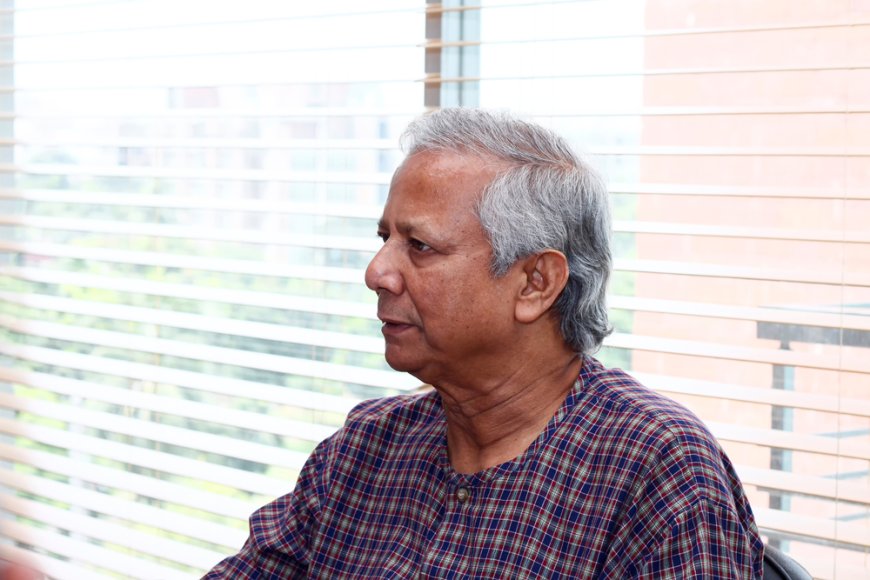One Year Report-Card for Professor Yunus
An assessment of the Chief Advisor as a leader in a transitional government context hinges on his ability to remain neutral, engage effectively with the public at all levels, and implement fair policies

On completion of a year since he took power, supporters of Professor Yunus still find it difficult to question his performance in his unexpected role in national politics.
The professor himself does not appear very comfortable with challenging interviews and rarely does one unless he is certain that the outcome will be favourable to him. This sometimes raises questions about his willingness to be transparent and a tendency some say to tightly control the image of his public persona. An inevitable result of that is the question of his sincerity becoming somewhat nuanced.
On the one hand, he has a history of advocating for the poor and marginalized, which suggests a genuine commitment to social welfare. On the other hand, the political arena often demands compromises and strategic manoeuvring that might lead to perceptions of insincerity.
If his actions seem to prioritize political gain, either for himself or for a certain faction, over public good, it could alienate many of his supporters.
Public trust is crucial. If people see Professor Yunus as a leader who genuinely cares about their welfare, they are more likely to support him. However, if he is perceived as playing a political game, that trust could erode quickly. In a politically charged environment, maintaining transparency and open communication will be key to his credibility.
Professor Yunus had the potential to be a transformative figure in Bangladeshi politics; his success now will depend on how well he navigates the existing political dynamics, addressing public concerns that balances his ideals with the realities of political life. The interplay between his intentions and the public’s perception will ultimately shape his legacy in this context.
Evaluating Professor Yunus's performance as head of an interim transitional government requires considering several key aspects:
Neutrality and Impartiality: A primary expectation of a transitional leader is to maintain neutrality, especially in a politically polarized environment. If Professor Yunus is perceived as fair in his decisions and actions, it would positively influence his credibility. However, there are indications that he has favoured certain political factions or interests, and this has undermined his position to a great extent, leading to reasonable accusations and perceptions of partiality.
Crisis Management: The effectiveness of his leadership can also be assessed through his response to crises, whether they be economic challenges, social unrest, or governance issues. His ability to navigate these challenges without appearing to take sides would be crucial in maintaining public trust. The recent Milestone tragedy was a test for him that he struggled to pass.
Public Engagement: An effective transitional leader should engage with the public and various stakeholders. If Professor Yunus has initiated dialogues or forums to understand the concerns of different groups, it would reflect positively on his leadership style. Conversely, a lack of engagement could lead to feelings of disconnection from the populace. He should not outsource engagement with the public to others in his cabinet. This engagement needs to be all inclusive, non-discriminatory, and free from ideological or personal biases. Alienating a certain section of the population, however small or large, runs the risk of trapping him in a one-sided political impasse.
What's Your Reaction?















































































